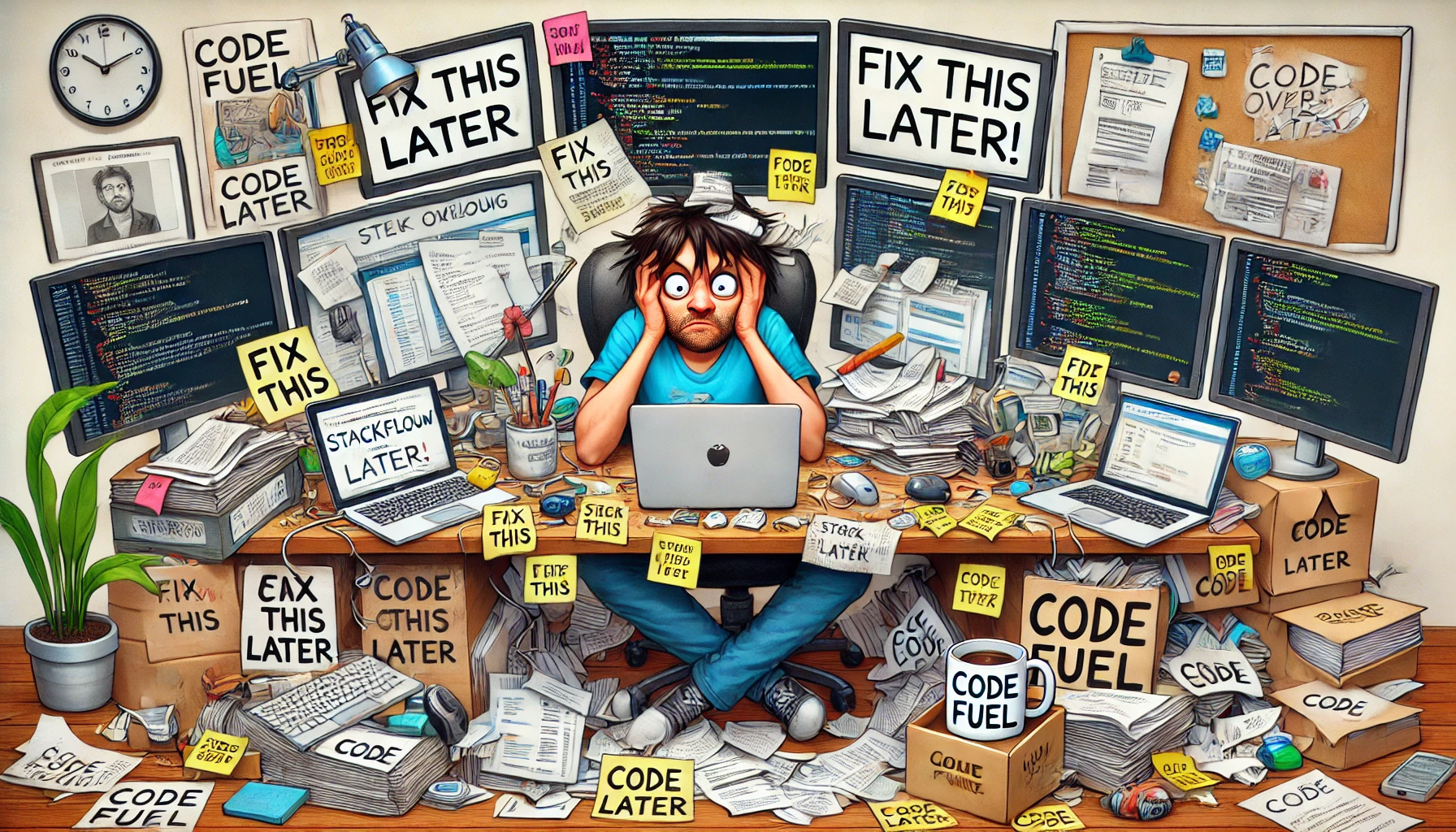People think developers write code in a smooth, structured way—like some kind of elegant digital architect.
They imagine us sitting in front of a screen, effortlessly typing out clean, efficient, well-documented functions, sipping coffee, and feeling in complete control.
Yeah. No.
Here’s what actually happens.
Step 1: The Grand Vision (“I know exactly how to do this.”)
You get the ticket. You think, Oh, this is simple.
You crack your knuckles. Open your editor. Start typing with confidence.
You’re in the zone. The code is flowing. You are an unstoppable force. A coding genius. You should write a book about this.
Step 2: The First Run (“Why is it broken?”)
You confidently hit run.
Immediate error.
Okay, no problem. A minor fix. You run it again.
Different error.
You frown. Maybe you mistyped something? You check the function names. Everything looks correct.
Run it again.
Now it’s really broken.
This is the moment you realize: You have no idea what you’re doing.
Step 3: The Google Phase (“Surely someone has solved this before.”)
You open Google. You type something completely ridiculous, like:
“PHP array error help please what is happening”
You find a Stack Overflow thread from 2012. Someone had a similar problem. The top answer is:
“Have you tried restarting your computer?”
You scroll down. Another answer looks promising. You copy and paste the code without reading it.
It doesn’t work.
Step 4: The Deep Spiral (“I have made a terrible mistake.”)
You start adding random print statements.
You go deeper into Stack Overflow. You start reading answers from people who sound like they barely know what they’re doing—but at this point, you’re desperate.
You begin questioning your life choices.
Maybe I should’ve been a chef? People always need food. Nobody ever asks a steak why it’s not iterating through an array properly.
Step 5: The Accidental Fix (“Wait… what?”)
You change one tiny thing—maybe a missing semicolon, maybe a different variable name—and suddenly…
It works.
You don’t know why. You don’t care.
You immediately push the fix before it breaks again.
Step 6: The “Good Enough” Phase (“I’ll refactor this later.”)
You know the code is messy. You know future-you will hate this.
But you tell yourself:
“I’ll clean it up later.”
You never do.
Step 7: The Code Review Horror (“What was I thinking?”)
Two weeks later, someone reviews your code.
“Hey, why is there a
console.log('WHY IS THIS BROKEN')in here?”
“Is this function name supposed to be
fixThisPleaseFinal_v3()?”
“Did you… copy this from Stack Overflow?”
You avoid eye contact. You pretend you didn’t see the comments.
You consider changing your name and moving to another country.
But eventually, you fix it. You push the final version. The PR gets approved.
And then…
A new ticket comes in.
And the cycle begins again.
